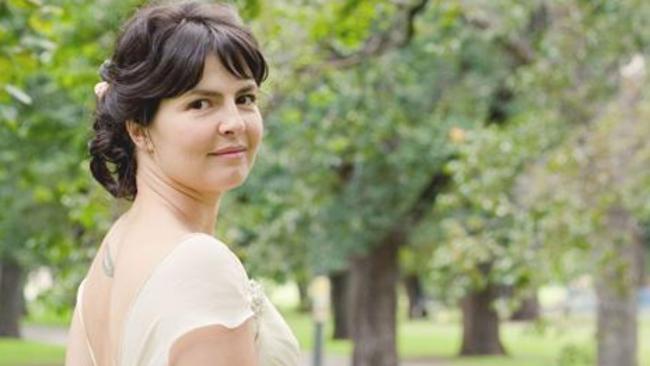Midwives insist they did not know of tragic homebirth mum Caroline Lovell’s history of haemorrhaging
THE MIDWIVES who cared for a woman who died after a homebirth, insist they did not know she had history of haemorrhaging, inquest hears.

Law & Order
Don't miss out on the headlines from Law & Order. Followed categories will be added to My News.
THE MIDWIVES who cared for Caroline Lovell, who died after a homebirth, insist they did not know she had history of haemorrhaging, a court has heard.
The homebirth campaigner died on January 24, 2012 — a day after healthy baby Zahra was born in her Watsonia home.
But the 36 year old’s mother, Jade Markiewicz, who was not present at the birth, said her daughter knew something was not right soon after Zahra was born.
The Coroner’s Court heard from midwives that Mrs Lovell had fainted, become agitated and hyperventilated and she allegedly told midwives she was dying and wanted to go to hospital.
Her mother, who is being represented by Slater & Gordon, said in a statement outside of court that it was outrageous that her daughter was the first to notice her condition and that it took too long for an ambulance to be called.
She said two girls had been robbed of a mother and lessons must be learnt to preventing this from occurring again.
“Her death was preventable and it must not be in vain,” she said.
The inquest into her death heard Mrs Lovell suffered a haemorrhage after the birth of her first baby, Lulu.
Mrs Lovell had wanted a homebirth, but Lulu was born in hospital after a uterine fibroid was found.
Senior registered midwife and nurse, Gaye Demanuele, told the court the haemorrhage was not in the medical records she was shown by Mrs Lovell and her patient did not tell her about it.
However, she did know about the uterine fibroid, a tear and two operations over suspected retained placenta after Lulu’s birth.
The Lovell’s paid midwives Ms Demanuele and Melody Bourne $4000 to manage the birth of their second daughter.
The junior midwife, Ms Bourne, who has not practised midwifery since Mrs Lovell’s death, sobbed on her second day in the witness box, saying she was “consumed by grief and trauma.”
Baby Zahra was born at 8.52am on January 23 2012, she was pink and warm and breathed on her own.
At 10.15am, Mrs Lovell asked to go to hospital and told the midwives she was “dying.”
Five minutes later Mrs Lovell became pale, cold, clammy and unresponsive.
An ambulance was called.
The two midwives performed CPR until the paramedics arrived.
Mrs Lovell was taken to the Austin Hospital, but died overnight.
The midwives said Mrs Lovell lost approximately 400ml of blood at home, which the midwives said was not excessive.
Coroner White raised concern about the accurateness of estimating blood loss in a birthing pool.
Mrs Lovell had borderline low iron stores in the lead up to her labour, but the midwives said they had managed this with diet and supplements.
Mrs Lovell had declined some ultrasounds and blood tests throughout her pregnancy because her first birth was medicalised and she wanted this one to be gentle and more natural, the midwives said.
The pair were questioned over whether their patient stayed in the pool too long, if the birth should have been managed differently given the patient’s history and if there was a delay in checking her pulse.
Mrs Demanuele said there was no hospital back up arranged for Mrs Lovell because it was not offered by their local hospital.
But she denied the homebirth was a political statement in light of this situation, and said Mrs Lovell was a well-informed and sensible woman.
The inquest continues.
